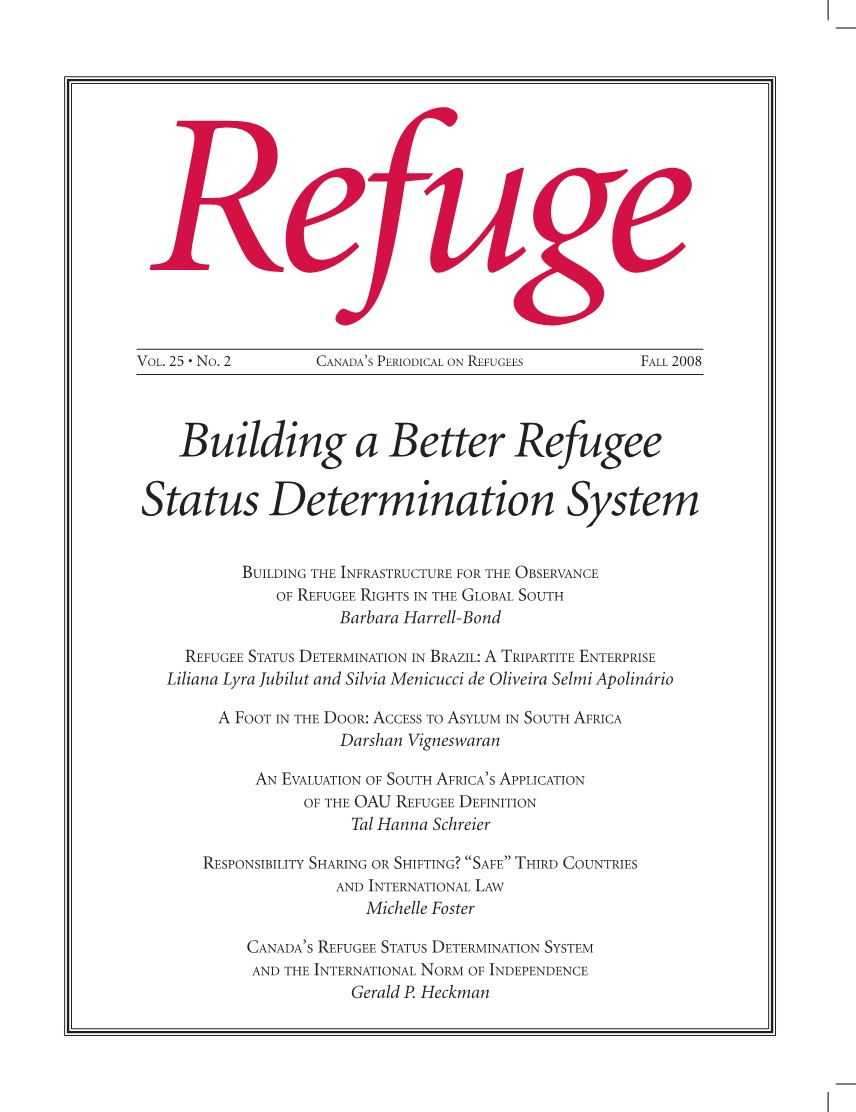Canada's Refugee Status Determination System and the International Norm of Independence
DOI:
https://doi.org/10.25071/1920-7336.26033Keywords:
Canada, refugee status determination, refugee protection, refugee rights, human rights, law, independent tribunalAbstract
Refugee protection decisions engage migrants’ fundamental life, liberty, and security of the person interests. As a result, refugee protection claimants enjoy institutional and procedural rights under conventional international law. These include the right to a fair adjudication of their protection claims by an independent tribunal. To be independent, a tribunal must meet the formal guarantees of security of tenure, financial security, and administrative independence and must actually be independent, in appearance and practice, from the executive and legislature, particularly in the appointments process. Refugee protection decisions must be made by first instance adjudicative bodies that either fully comply with the requirements of tribunal independence or whose decisions are subject to subsequent review by a tribunal that meets these requirements and has sufficient jurisdiction over the merits of the dispute. The Canadian refugee protection system fails, in certain respects, to meet international standards of independence. The Canadian Immigration and Refugee Board’s Refugee Protection Division enjoys statutory, objective badges of independence and appears to operate independently of the executive. However, the independence of Canadian officials engaged in eligibility determinations and in pre-removal risk assessments is very much in question because they have a closer relationship to executive law enforcement functions.Metrics
Downloads
Published
How to Cite
Issue
Section
License
Copyright (c) 2008 Gerald P. Heckman

This work is licensed under a Creative Commons Attribution-NonCommercial 4.0 International License.
Refuge authors retain the copyright over their work, and license it to the general public under the Creative Commons Attribution-Non Commercial License International (CC BY-NC 4.0). This license allows for non-commercial use, reproduction and adaption of the material in any medium or format, with proper attribution. For general information on Creative Commons licences, visit the Creative Commons site. For the CC BY-NC 4.0 license, review the human readable summary.







